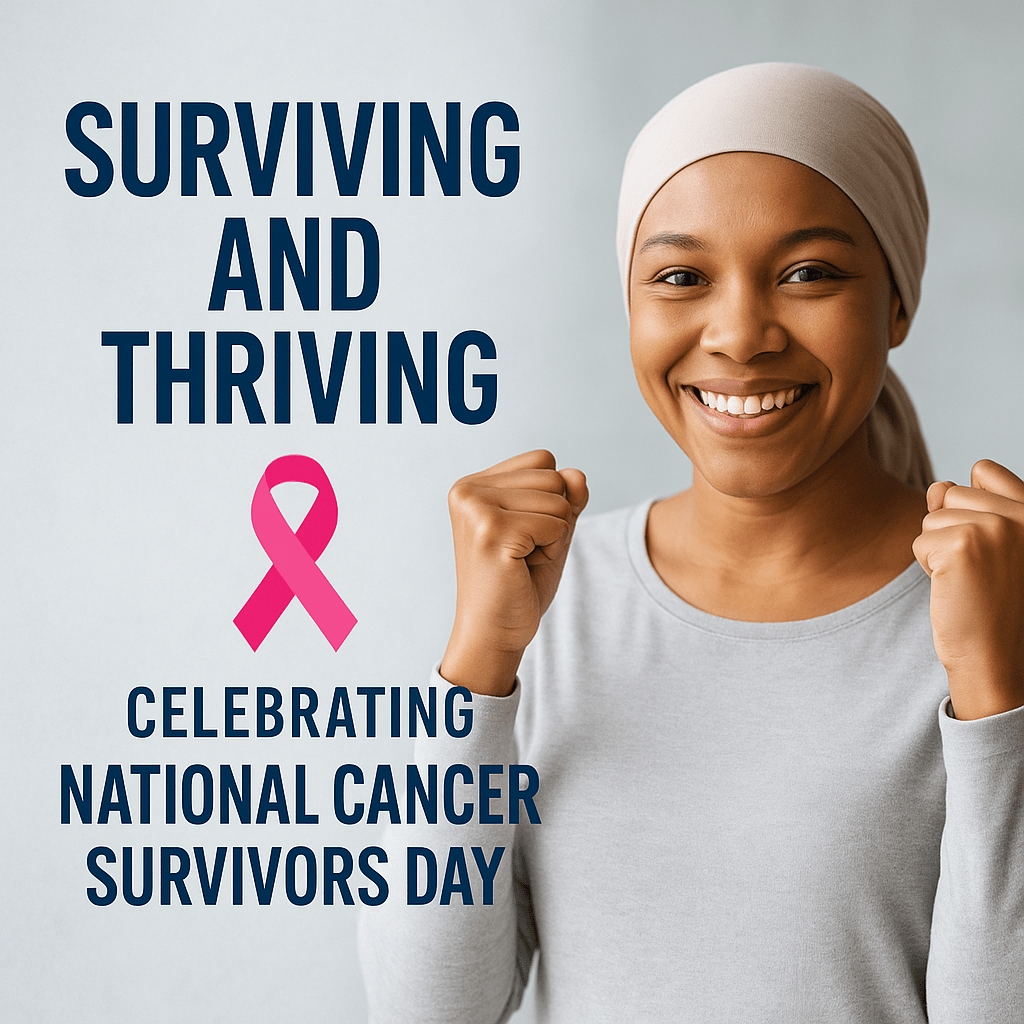
On National Cancer Survivors Day, we honor the strength, resilience, and stories of millions who have faced cancer and emerged stronger. This article explores the power of survivor voices, advances in treatment, and the vital role healthcare leaders play in supporting life beyond diagnosis.
Surviving and Thriving: Celebrating National Cancer Survivors Day
National Cancer Survivors Day is a poignant reminder of resilience and hope. Each year, millions of individuals across the globe celebrate their victories over cancer, sharing stories that inspire and uplift. As of 2022, there were nearly 18 million cancer survivors in the U.S. alone. This, not only highlights the progress made in cancer treatment but also underscores the need for ongoing support beyond treatment. As healthcare professionals, particularly those in leadership roles, it’s crucial to acknowledge the advancements in cancer care and the pivotal role we play in supporting survivors on their journey.
There are a myriad important inspirational patient stories, recent advancements in cancer treatment and survivorship care plans. Through all this, healthcare organizations can effectively support survivors beyond their treatment.
The Power of Survivor Stories
Nothing resonates more than personal narratives that encapsulate the journey of cancer survivors. Take, for instance, the story of a young mother who, after a harrowing battle with breast cancer, returned to her family with renewed vigor and purpose. Her journey did not just end with treatment; she became an advocate for cancer awareness in her community. Stories like hers not only inspire others but also serve as a powerful reminder of the emotional and psychological challenges survivors face. The emotional health of survivors is just as vital as their physical recovery, and healthcare organizations must recognize and address this aspect.
By creating platforms for survivors to share their stories, healthcare providers can foster a sense of community and support. This practice aids in reducing feelings of isolation and helps survivors connect with others who understand their experiences. Furthermore, these narratives can inform healthcare policies and practices, ensuring they are survivor-centered and compassionate.
Advancements in Cancer Treatment
The landscape of cancer treatment has evolved dramatically over the past decade. With breakthroughs in immunotherapy and personalized medicine, patients are experiencing improved outcomes and reduced side effects. According to recent studies, advancements in these areas have led to a significant increase in survival rates. For instance, one study highlights that targeted therapies have transformed the prognosis for many cancer types, offering hope where there was once despair.
However, these advancements also bring new challenges. As treatment options expand, so does the complexity of care. Healthcare organizations must develop comprehensive survivorship care plans that address the long-term physical and emotional needs of survivors. These plans should encompass regular screenings, lifestyle modifications, and mental health support, ensuring that survivors receive holistic care that extends well beyond their initial treatment.
The Role of Healthcare Organizations
Healthcare organizations play a crucial role in the lives of cancer survivors. From providing access to cutting-edge treatments to offering support services, the commitment to survivor care must be unwavering. One effective strategy is the establishment of multidisciplinary care teams that include oncologists, nurses, mental health professionals, and nutritionists. This collaborative approach ensures that survivors receive comprehensive care tailored to their unique needs.
Moreover, organizations can enhance their support programs by integrating technology. Mobile apps and online platforms can provide survivors with easy access to resources, community support, and educational materials. By utilizing these tools, healthcare providers can engage with patients more effectively, keeping them informed and connected throughout their survivorship journey.
Looking Ahead: Creating a Culture of Support
As we celebrate National Cancer Survivors Day, let’s commit to fostering a culture of support and understanding within our healthcare systems. The journey of a cancer survivor is not a solitary one; it involves a community that cares and collaborates. By prioritizing survivorship care, healthcare organizations can significantly impact the quality of life for millions of survivors.
As leaders in the healthcare industry: How can you better support cancer survivors in your communities? By embracing innovative treatment options, enhancing survivorship care plans, and creating spaces for survivor stories, you can ensure that every survivor not only survives but thrives.
Key Takeaways
- Nearly 18 million Americans are cancer survivors, highlighting both medical progress and the ongoing need for long-term support.
- Personal survivor stories foster connection, reduce isolation, and guide more compassionate, survivor-centered healthcare practices.
- Advancements like immunotherapy and personalized medicine have significantly improved survival rates and quality of life for patients.
- Comprehensive survivorship care plans—including screenings, mental health, and lifestyle support—are essential post-treatment.
- Healthcare organizations must lead by building multidisciplinary teams and embracing technology to support survivors beyond the clinic.
Previous Insights
Each week, we email a summary along with links to our newest articles and resources. From time to time, we also send urgent news updates with important, time-sensitive details.
Please fill out the form to subscribe.
Note: We do not share our email subscriber information and you can unsubscribe at any time.
|
|
Thank you for Signing Up |

Sources
- JAMA Network – July 2024
Cancer Survivorship Care in the United States at Facilities Accredited by the Commission on Cancer https://jamanetwork.com/journals/jamanetworkopen/fullarticle/2820708 - Pediatric Research – June 2025
Addressing gaps and enhancing experiences in support services for families of pediatric cancer survivors
https://www.nature.com/articles/s41390-024-03320-2 - Science Direct – March 2024
The built environment and cancer survivorship: A scoping review
https://www.sciencedirect.com/science/article/abs/pii/S1353829224000340 - Journal of the National Cancer Institute – July 2024
Prevalence of cancer survivors in the United States
https://academic.oup.com/jnci/article/116/11/1784/7713374 - Springer Nature Link – May 2024
Developing national cancer survivorship standards to inform quality of care in the United States using a consensus approach
https://link.springer.com/article/10.1007/s11764-024-01602-6
Partner with BHM Healthcare Solutions
With over 20 years in the industry, BHM Healthcare Solutions is committed to providing consulting and review services that help streamline clinical, financial, and operational processes to improve care delivery and organizational performance.
Make the shift to a more effective process.
